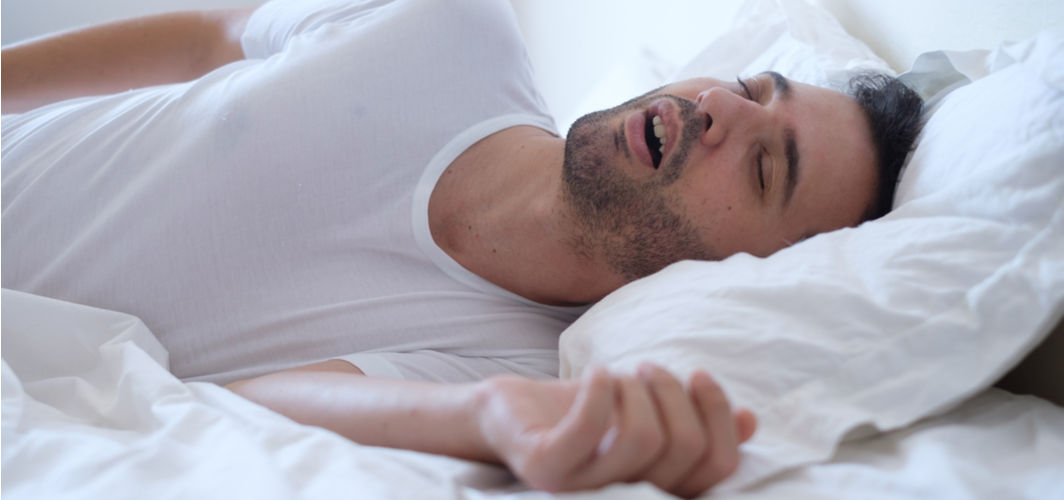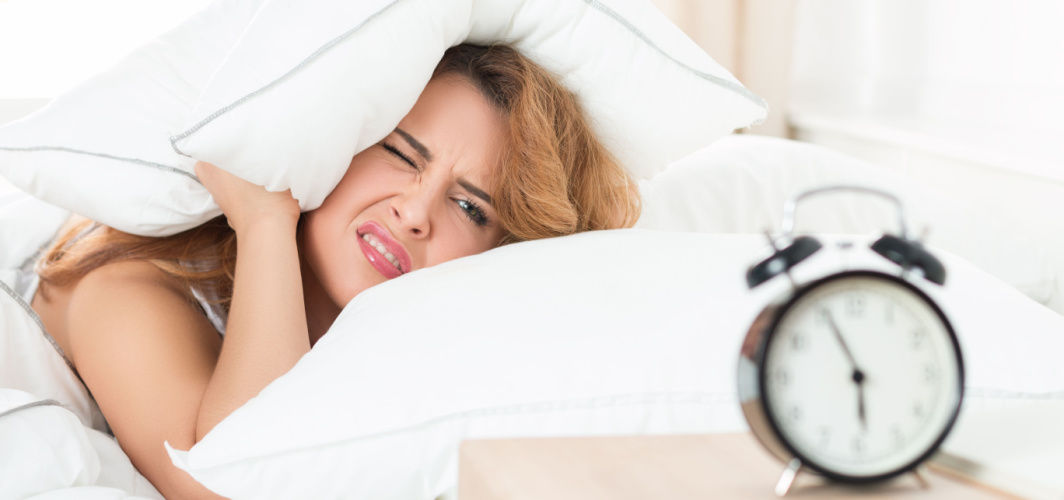General Health
Loud Snoring: Is It Normal Or A Sign Of Sleep Apnoea?
4 min read
By Apollo 24/7, Published on - 17 February 2022, Updated on - 12 July 2023
Share this article
1
21 likes

Conditions like common cold and chest congestion can be annoying, especially at night, as they restrict normal breathing and result in snoring. However, could there be more to your loud snore? A disorder, called sleep apnoea, characterized by loud snoring can cause breathing to stop completely while the person is asleep. Recently, a veteran composer and singer of India passed away due to obstructive sleep apnoea. Let us understand more about this potentially fatal condition.
What is sleep apnoea?
Sleep apnoea is a condition that can cause a person to stop breathing repeatedly while they are sleeping, thereby increasing the risk of high blood pressure, stroke, heart failure, and heart attacks. Depending on the cause of breathing obstruction, the two types of sleep apnoea include:
- Obstructive sleep apnea (OSA): Obstructive sleep apnoea accounts for more than half of the cases of sleep apnoea. As the name suggests, OSA occurs due to repetitive partial or complete obstruction in the airway while sleeping. It causes the muscles of the throat, tongue, and palate to relax, resulting in an obstruction in the airway.
- Central sleep apnea (CSA): In CSA, though the airway is clear, the brain fails to send signals to the breathing muscles, thereby resulting in restricted breathing.
Recommended Read: Could There Be More to Your Snore?
What are the signs of sleep apnoea?
The signs of sleep apnoea are usually identified by the patient’s partner. The most common signs include:
- Loud snoring
- Feeling sleepy during the daytime
- Persistent fatigue
- Headaches
- Feeling restless or waking up frequently at night
- Choking or gasping at night
- Difficulty in swallowing
- Dry mouth or sore throat
- Night sweats
- Urinating frequently at night
- Feeling irritating and forgetful
- Difficulty in concentrating
- Sexual dysfunction
Children suffering from sleep apnoea may experience sluggishness, difficulty in concentrating, attention trouble, and profuse sweating at night.
What causes sleep apnoea?
Obstructive sleep apnoea (OSA) occurs due to a blockage in the airway, which causes the back of the throat to collapse during sleep. Smoking, chronic alcohol consumption, and enlarged tonsils or adenoids can result in OSA.
On the other hand, central sleep apnoea occurs due to improper functioning of the central nervous system (CNS), which fails to transfer signals from the brain to the breathing muscles. CNS dysfunction can occur due to stroke or neuromuscular diseases such as amyotrophic lateral sclerosis (ALS) or genetic disorders. Sleep apnoea is also commonly seen in people suffering from heart, kidney, or lung disease.
Can sleep apnoea be treated?
Measures that may help treat sleep apnoea include:
- Lose weight: Doctors believe that losing even 10% of the current body weight can help reduce the severity of sleep apnoea. It can also reduce daytime sleepiness and reduce the risk of high blood pressure. Exercise for at least 30 mins regularly to maintain a healthy weight.
- Avoid muscle relaxants: Avoid the use of sleeping pills, and alcohol before going to bed as it relaxes the throat muscles. Do not consume muscle relaxants without consulting a doctor.
- Change sleeping position: Rather than sleeping on the back, sleep on the side position to reduce snoring.
- Clear nasal obstruction: Use nasal sprays or breathing strips to clear the obstruction in the nose and reduce snoring at night.
- Use Positive Airway Pressure (PAP) therapy: In PAP therapy, the patient is made to wear a mask, which is connected to a machine that blows air into the nose and mouth of the patient to prevent the airway from collapsing during sleep. Continuous Positive Airway Pressure (CPAP) is the most commonly used breathing device by sleep apnoea patients.
- Oral devices: Doctors may also prescribe oral devices that prevent the tongue from falling back into the throat or pulling the lower jaw forward, thereby preventing obstruction in the airway.
- Surgery: Surgical procedures like tonsillectomy (removal of tonsils), Uvulopalatopharyngoplasty (removal of soft tissues from the back of the throat and palate), and correction of the deviated nasal septum are recommended to remove obstructions from the airway.
Takeaway
Sleep apnoea is a potentially life-threatening sleep disorder characterised by interrupted breathing during sleep. However, early detection and proper medical care can help treat the condition efficiently. People diagnosed with sleep apnea should adopt a healthy lifestyle, use prescribed breathing devices, and follow the doctor’s advice religiously to prevent severe consequences. Partners of loud snorers must encourage them to consult a doctor for further investigation.
Are you also concerned about your or your partner’s snoring?
General Health
Leave Comment
Recommended for you

General Health
Night Owls Or Early Birds: Who’s More Likely To Develop Heart Ailments & Diabetes?
Researchers conducted a study that compared night owls, those who stay up late, with the early birds, those who are at their most energetic in the mornings. Read to know how these sleeping habits can affect people’s susceptibility to developing certain chronic diseases.

General Health
Hair Loss: Top Causes and How to Deal with It
Depending on the underlying condition, hair loss can be both temporary and permanent. Most cases of hair loss are managed using the required vitamin and mineral supplements.

General Health
Debunking 10 Myths About Hernias
Hernias are a bulge caused by tissue pushing through the wall of weakened muscles holding them. Most hernias are abdominal hernias caused due to factors such as obesity, pregnancy or hereditary conditions.
Subscribe
Sign up for our free Health Library Daily Newsletter
Get doctor-approved health tips, news, and more.
Visual Stories

Plant-based Foods That Are a Great Source of Iron
Tap to continue exploring
Recommended for you

General Health
Night Owls Or Early Birds: Who’s More Likely To Develop Heart Ailments & Diabetes?
Researchers conducted a study that compared night owls, those who stay up late, with the early birds, those who are at their most energetic in the mornings. Read to know how these sleeping habits can affect people’s susceptibility to developing certain chronic diseases.

General Health
Hair Loss: Top Causes and How to Deal with It
Depending on the underlying condition, hair loss can be both temporary and permanent. Most cases of hair loss are managed using the required vitamin and mineral supplements.

General Health
Debunking 10 Myths About Hernias
Hernias are a bulge caused by tissue pushing through the wall of weakened muscles holding them. Most hernias are abdominal hernias caused due to factors such as obesity, pregnancy or hereditary conditions.